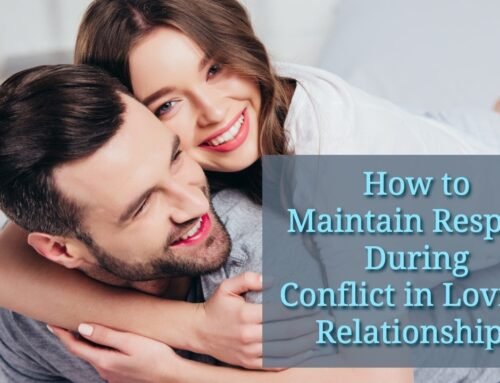Jealousy is a complex emotion that can impact relationships significantly. Learn about the different forms of jealousy, its triggers, and how it can affect your relationship dynamics. Discover effective strategies to manage and overcome jealousy by fostering trust, communication, and self-esteem. Explore when to seek professional help and long-term strategies for maintaining a healthy, jealousy-free relationship.
Understanding Jealousy: What It Is and Why It Happens
Its Evolutionary Roots
Jealousy is a complex emotion that arises when an individual perceives a threat to a valued relationship or possession. This feeling often encompasses a range of other emotions, such as fear, anger and sadness. Psychologically, jealousy can be understood through its evolutionary roots. Historically, securing relationships and resources was vital for survival and reproduction, making jealousy a natural defensive mechanism designed to protect these vital aspects of life.
Different Forms of Jealousy
There are various forms of jealousy, each manifesting differently based on the context. Romantic jealousy, for instance, occurs when one perceives a threat to their intimate relationship. It can be fuelled by insecurities or fear of infidelity. Social jealousy arises when individuals feel envious of another person’s social status, achievements or possessions. Sibling rivalry, often seen in family dynamics, is another common form of this emotion, driven by the need for parental attention and resources.
Common Triggers
Several triggers can set off jealousy in relationships. Insecurity is a primary cause, stemming from a lack of self-esteem or self-worth. When individuals do not feel confident in themselves, they are more likely to view others as threats. Fear of abandonment is another significant trigger. This fear can often be traced back to past experiences where an individual faced rejection or loss. Such experiences create a heightened sensitivity to perceived threats in current relationships.
Past betrayals or experiences of infidelity can also leave lasting scars, making one more prone to jealousy. Trust issues can develop, leading individuals to constantly seek reassurance and validation in their relationships. It is important to recognise that jealousy, while challenging, is a natural emotion that everyone encounters at some point in their lives. Acknowledging its presence and understanding its roots can be the first step toward addressing it healthily.
The Impact of Jealousy on Relationships
Jealousy, often described as the “green-eyed monster,” can significantly affect the dynamics of a relationship. While it is a natural emotion, when left unchecked, jealousy can spiral into a destructive force that undermines trust and harmony between partners. In its most severe forms, jealousy can lead to a cycle of mistrust, constant arguments and emotional distance, eroding the foundation of even the most robust relationships.
Mistrust and Constant Arguments
Mistrust is one of the primary byproducts of unchecked jealousy. When one partner begins to doubt the other’s loyalty without substantial evidence, it creates a breeding ground for suspicion and insecurity. This lack of trust can manifest in various ways, such as snooping through personal belongings, incessantly checking phones or demanding constant updates on whereabouts. Over time, these behaviours can make the accused partner feel like they are perpetually walking on eggshells, leading to heightened stress and resentment.
Frequent arguments are another common consequence of jealousy. When jealousy infiltrates a relationship, it often brings with it accusations and confrontations. These can stem from seemingly minor incidents, such as a casual conversation with a co-worker or a delayed text response. The jealous partner may interpret these actions as threats, leading to heated disputes that can escalate quickly. Continual conflict can exhaust both partners emotionally, making it challenging to maintain a positive and supportive relationship.
Emotional Distance and Possessiveness
Emotional distance is a long-term consequence of unresolved jealousy. When jealousy persists, it can create a barrier between partners, making it difficult to connect on an emotional level. The constant tension and distrust can cause one or both partners to withdraw, leading to a lack of intimacy and emotional fulfilment. Over time, this emotional distance can become insurmountable, potentially culminating in the breakdown of the relationship.
In everyday interactions, jealousy can also manifest through possessiveness and frequent accusations. A partner may become overly controlling, limiting the other’s social interactions and personal freedom. This can create a toxic environment where one partner feels suffocated and the other feels justified in their behaviour. If not addressed, these patterns can lead to long-term dissatisfaction and an irreparable rift between partners.
Recognising the Signs of Unhealthy Jealousy
Jealousy, while a natural human emotion, can sometimes spiral into unhealthy patterns that strain relationships and create toxic dynamics. Identifying the signs of unhealthy jealousy is crucial for maintaining healthy and supportive connections. One of the most telling indicators of problematic jealousy is the presence of obsessive thoughts. These intrusive thoughts often revolve around the fear of betrayal or the constant need for reassurance, which can be emotionally exhausting for both partners.
Intrusive Thoughts and Controlling Behaviours
Controlling behaviours are another red flag of unhealthy jealousy. This can manifest as dictating your partner’s social activities, monitoring their communications or imposing restrictions on their interactions with others. Such actions stem from insecurity and a lack of trust, undermining the foundations of a healthy relationship.
Unwarranted Suspicion and Emotional Strain
Unwarranted suspicion is closely related, where one partner consistently doubts the other’s intentions without any concrete evidence. This suspicion can lead to frequent accusations and conflicts, eroding the sense of mutual respect and understanding.
These behaviours not only strain the relationship but also create an environment of anxiety and mistrust. The constant need to defend oneself against baseless accusations can be draining and demoralising. It is essential to recognise these signs early and address them proactively. Self-reflection is a critical first step in managing unhealthy jealousy. Taking an honest look at your emotions and understanding the root causes of your fears can provide valuable insights. Additionally, open and honest communication with your partner is vital. Expressing your concerns calmly and respectfully can help in finding constructive solutions and building a stronger, more resilient relationship.
By acknowledging and addressing these signs of unhealthy jealousy, individuals can work towards fostering a healthier and more fulfilling relationship. It is through self-awareness and communication that the destructive cycle of jealousy can be broken, paving the way for trust and harmony.
Communicating Your Feelings Effectively
Using “I” Statements
Addressing feelings of jealousy can be challenging, but effective communication is key to managing these emotions constructively. One essential strategy is to use “I” statements when expressing how you feel. For instance, saying “I feel insecure when you spend a lot of time with your colleagues after work” focuses on your emotions rather than placing blame on your partner. This approach fosters a non-confrontational atmosphere and encourages understanding.
Creating a Safe Space for Dialogue
Creating a safe space for open dialogue is another crucial component. Set aside dedicated time to talk, ensuring both parties are free from distractions and can engage fully in the conversation. This shows mutual respect and a willingness to work through the issue together.
Active Listening and Empathy
Active listening also plays a significant role in these discussions. By genuinely listening to your partner’s perspective without interrupting, you validate their feelings and demonstrate empathy.
Empathy and understanding are vital when dealing with jealousy. Try to put yourself in your partner’s shoes and understand their point of view. This can help to diffuse tension and create a more collaborative environment for resolving the issue. Acknowledge their feelings and be patient, as these conversations can sometimes be difficult and emotional.
Remember, the goal is to strengthen the relationship by addressing jealousy in a healthy way. Clear and compassionate communication can help both partners feel heard and valued, ultimately fostering a more trusting and secure bond.
Building Trust and Security in Your Relationship
Trust and security are fundamental pillars in any relationship and they play a significant role in mitigating jealousy. When partners feel secure and trust each other, the seeds of jealousy find it difficult to take root. Building and maintaining trust involves a series of deliberate actions that reinforce the bond between partners, making it harder for jealousy to thrive.
Keeping Promises and Transparency
One of the most effective ways to build trust is by consistently keeping promises. When you follow through on commitments, your partner feels valued and confident in your reliability. This consistency helps to create a stable environment where both partners trust that their needs and expectations will be met.
Transparency is another key element in fostering trust. Open communication about feelings, thoughts and daily activities can prevent misunderstandings that often fuel jealousy. By being transparent, you eliminate the mystery that can lead to suspicion and insecurity. Whether it is discussing your day at work or sharing your social plans, honesty lays the foundation for a trusting relationship.
Consistent Affection and Mutual Respect
Consistent affection also plays a crucial role in building trust and security. Regularly expressing love and appreciation through words and actions reassures your partner of their importance in your life. This consistent show of affection helps to strengthen the emotional connection, making it less likely for jealousy to arise.
Moreover, mutual respect and support are indispensable in creating a secure relationship environment. Respecting each other’s boundaries, opinions and individuality fosters a sense of equality and partnership. When partners feel respected and supported, they are less likely to experience feelings of insecurity that often lead to jealousy.
In conclusion, by focusing on keeping promises, maintaining transparency, showing consistent affection and upholding mutual respect and support, couples can build a strong foundation of trust and security. This foundation not only strengthens the relationship but also creates an environment where jealousy is less likely to take hold.

Self-Esteem and Independence: Keys to Overcoming Jealousy
Jealousy often finds fertile ground in the soil of low self-esteem and a lack of independence. When individuals harbour doubts about their own worth or lack a sense of personal autonomy, they may be more prone to feelings of jealousy. This emotional turbulence can strain relationships and lead to unhealthy dynamics. Therefore, fostering self-esteem and cultivating independence are pivotal in mitigating jealousy.
Building Self-Confidence
Building self-confidence is a foundational step in addressing jealousy. Confidence stems from recognising and appreciating one’s own strengths and achievements. Engaging in activities that highlight personal skills and passions can significantly boost self-worth. Pursuing hobbies, setting and achieving personal goals and celebrating small victories are effective ways to enhance self-esteem. This, in turn, reduces the tendency to seek constant validation from a partner, which is a common trigger for jealousy.
Importance of Independence in Relationships
Independence in a relationship does not equate to emotional distance. Rather, it means maintaining a balanced sense of individuality while being part of a couple. Encouraging each other to pursue personal interests and supporting individual growth can foster a healthier relational dynamic. This mutual respect for personal space and autonomy can diminish feelings of jealousy. When both partners feel fulfilled independently, the relationship is less likely to be burdened by insecurity and possessiveness.
Developing Self-Worth Through Introspection
Developing a strong sense of self-worth also involves introspection and self-compassion. Reflecting on personal values, strengths and aspirations can help individuals understand their intrinsic value, independent of external validation. Practising self-compassion can mitigate feelings of inadequacy, which often fuel jealousy. By treating oneself with kindness and understanding, one can cultivate a more resilient self-esteem.
In essence, nurturing self-esteem and fostering independence are critical strategies in overcoming jealousy. By building confidence and pursuing personal fulfilment, individuals can create a more balanced and healthy relationship dynamic, free from the shadows of jealousy.
Seeking Professional Help: When and How to Get Support with a Relationship Coach
When to Consider a Relationship Coach
Jealousy, while a common emotional experience, can sometimes spiral and disrupt your daily life and relationships. In such situations, seeking professional help from a relationship coach can be a valuable step. Recognising when jealousy has become unmanageable is the first step. If you find that feelings of envy are causing significant distress, leading to constant arguments or impacting your mental well-being, it might be time to consult a relationship coach.
Benefits of Relationship Coaching
Relationship coaches offer substantial benefits in addressing jealousy. Through coaching sessions, you and your partner can explore the underlying causes of jealousy together, fostering a better understanding and improving communication skills. This collaborative approach helps in building trust and establishing healthier patterns of interaction. A coach can also provide guidance on navigating difficult conversations and setting boundaries within your relationship.
Finding a Qualified Relationship Coach
Finding a qualified relationship coach involves several steps. Start by seeking recommendations from friends, family or mental health professionals. Online directories can also offer resources to help locate coaches in your area. It is important to consider the coach’s experience and areas of speciality. Look for a coach who has experience dealing with issues related to jealousy and relationships.
During the initial consultation, discuss your concerns, goals and the specific challenges you are facing. The coach will likely use various techniques to help you understand your emotions and develop coping strategies. These strategies might involve communication exercises, reframing negative thought patterns or practising healthy boundaries. The coaching process is collaborative and evolves based on individual needs and progress.
By seeking support from a relationship coach, individuals and couples can gain valuable tools and guidance for managing jealousy healthily. This can lead to more fulfilling and harmonious relationships.
Maintaining a Healthy Relationship: Long-Term Strategies
Regular Check-Ins with Your Partner
Jealousy, when left unchecked, can erode the foundation of even the most solid relationships. To keep jealousy at bay and foster a healthy partnership, it is essential to adopt long-term strategies that promote trust and mutual respect. One effective approach is to establish regular check-ins with your partner. These discussions provide a safe space to address any feelings of insecurity or concern, allowing both parties to express themselves freely and work through any issues collaboratively.
Practising Gratitude and Setting Shared Goals
Practising gratitude is another powerful tool in maintaining a jealousy-free relationship. By consistently acknowledging and appreciating your partner’s positive qualities and actions, you can cultivate an environment of mutual respect and admiration. This habit not only strengthens your bond but also shifts the focus away from feelings of envy or insecurity.
Setting relationship goals together can serve as a roadmap for your partnership, ensuring that both individuals are aligned in their vision for the future. These goals can range from personal growth objectives to shared milestones, such as planning trips or working towards financial stability. By working together towards common aspirations, you reinforce your commitment to the relationship and reduce the likelihood of jealousy creeping in.
Importance of Continuous Personal Growth and Mutual Support
Continuous personal growth is crucial in sustaining a healthy relationship. Both partners should strive to develop their own interests and skills, fostering a sense of individuality and self-confidence. When each person feels fulfilled and secure in their own right, they are less likely to succumb to feelings of jealousy. Additionally, mutual support plays a vital role in this process. Encouraging and uplifting each other through various endeavours fortifies your connection and creates a foundation of trust and empathy.
By integrating these long-term strategies into your relationship, you can create a nurturing and jealousy-free environment. Regularly discussing feelings, practising gratitude, setting shared goals and promoting personal growth and mutual support are key to maintaining a loving and resilient partnership.






























